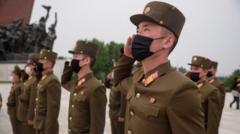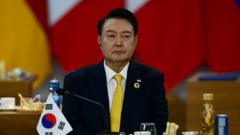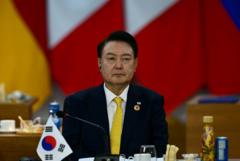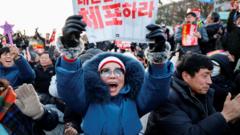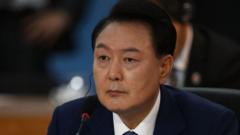The confirmation by South Korean actor Jung Woo-sung that he fathered a child with model Moon Ga-bi has ignited a heated national debate regarding societal norms on marriage, family structures, and celebrity accountability in South Korea. While conservative figures condemn the situation, progressive voices advocate for acceptance of diverse family dynamics.
South Korean Celebrity Baby Scandal Ignites Debate on Family Norms
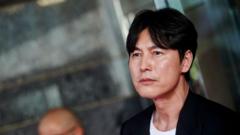
South Korean Celebrity Baby Scandal Ignites Debate on Family Norms
Jung Woo-sung's revelation of fathering a child out of wedlock has sparked intense national discussions on family values and societal expectations in South Korea.
Jung Woo-sung, a prominent actor in South Korea, has found himself at the center of a national conversation after acknowledging that he is the father of a newborn son with model Moon Ga-bi, a relationship not formalized by marriage. The announcement, made through his agency, is viewed by many as a revelation of how traditional family values are pressured by modern societal expectations.
Moon disclosed her child's birth on social media, mentioning she was unprepared for the pregnancy. The subsequent confirmation from Jung's agency triggered an immediate wave of reactions, primarily critical of the actor for his lack of commitment regarding marriage. In South Korea, where conservative values often dominate, raising a child outside of wedlock remains a contentious subject.
Many social commentators expressed dismay over Jung's perceived failure to uphold his ‘good guy’ persona, particularly in light of his previous role as a UN ambassador. Criticism poured in across social media platforms, accusing him of failing his responsibilities as a parent by not marrying Moon. The juxtaposition of his past image against this new reality has prompted widespread disappointment among fans.
While some conservative politicians denounce Jung’s actions as incompatible with South Korean moral standards, a growing number of progressive voices are calling for a broader acceptance of diverse family structures. A lawmaker from the conservative People Power Party labeled Jung’s actions as “unthinkable,” reinforcing the notion that traditional marriage remains the expectation.
Contrarily, members of the Democratic Party, such as Lee So-young, have championed the need for personal choice in family matters, emphasizing that societal pressures should not dictate how families should form. An editorial from a leading progressive newspaper echoed this sentiment, advocating for society to evolve in its thinking about unconventional family units.
The conversation reflects a shift in public perception, as recent surveys show an increase in the acceptance of parenting outside of marriage, particularly among younger generations. This ongoing debate reveals the tension in South Korea as it grapples with modern family dynamics against a backdrop of deeply rooted traditions, illustrating the complexities surrounding celebrity conduct amid evolving societal norms.


